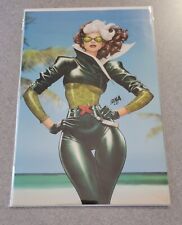From FF1:
Cornelia: Comes from the Latin "cornu", "horn". Might also be from "Cornelius", which means "strong" or "wise". (Thanks to Damian Maxwell.)
Elfheim: From Michael Robinson: This refers to the Realm of the Elven race in Norse mythology. Jason Maurer mentions that it "was actually two places, there was Alfheim, the land of the light elves, and Svartalfheim, land of the dark elves both of Nordic Mythology. Though due to the name, it was probably based on Alfheim."
Gaia: The town in the northeast in this game; it can be reached only with the airship. "Gaia" means Earth; she was the earth goddess who married Uranus, god of the heavens. The word is best known from James Lovelock's Gaia Hypothesis, which treats the Earth as a self-sustaining organism. In the latest FF vocal CD, the main theme of FF1 is called "Gaia" (and mentions Lovelock in the liner notes!). Also, FF6 features Gaea Gear (an alternate spelling).
Mt. Duergar (1): Cain Highwind quotes the following from a Dungeons and Dragons trading card: "The duergar, or grey dwarves, are a malevolent breed that dwells in the extreme depths of the ground... They detest other races of dwarves, whom they consider weak."
Mark Scrudder says the Duergar are "originally from Gotho-German mythology, being a type of subterranean earth spirit. Duergar are short with short legs, but very long arms which almost reach to the ground even when they're standing straight. They are expert craftsmen, but are very vulgar and base in nature and personality."
From FF2:
Altair: From Yama dev/null: Brightest star of Aquila, means "the Bird" or "the Eagle" in Arabic.
 Arubboth (GBA): From Moggy: "Comes from the Hebrew 'Araboth', meaning 'deserts' or 'plains'. It is, appropriately enough, the highest Heaven, just as Arubboth is said to be the palace of Heaven in the
game." "Arubboth" is also Hebrew for "windows" and is referenced e.g. in the account of Noah's flood, where the "windows of heaven opened".
Arubboth (GBA): From Moggy: "Comes from the Hebrew 'Araboth', meaning 'deserts' or 'plains'. It is, appropriately enough, the highest Heaven, just as Arubboth is said to be the palace of Heaven in the
game." "Arubboth" is also Hebrew for "windows" and is referenced e.g. in the account of Noah's flood, where the "windows of heaven opened".
Leviathan: See Summons.
 Machanon (GBA): From Moggy: "Likely comes from the Hebrew 'Makon'
which can be translated either as 'city' or 'established place', and is the second highest level of Heaven." It may also come from "Machaneh", Hebrew for "camp".
Machanon (GBA): From Moggy: "Likely comes from the Hebrew 'Makon'
which can be translated either as 'city' or 'established place', and is the second highest level of Heaven." It may also come from "Machaneh", Hebrew for "camp".
Mysidia: See Mysidia (FF4).
Pandaemonium is the last castle. The name "Pandemonium" originates with Milton's Paradise Lost; it's the city built by Lucifer and his followers after the Fall.
 Raqia (GBA): From Moggy: This is Hebrew for "firmament" or "expanse". It is also the name of the second lowest level of Heaven in Kabbalistic tradition and though I can't find the source for it anymore, I heard once it is the level where fallen angels are punished and imprisoned, similar to the Light Emperor's description of Raqia when the party meets him.
Raqia (GBA): From Moggy: This is Hebrew for "firmament" or "expanse". It is also the name of the second lowest level of Heaven in Kabbalistic tradition and though I can't find the source for it anymore, I heard once it is the level where fallen angels are punished and imprisoned, similar to the Light Emperor's description of Raqia when the party meets him.
Salamand is probably taken (as an opposite) from the Salamander - the Salamander is a fire creature, and Salamand is an ice-themed town. See Summons for the entry on Salamander.
Semitt Falls: Originally "Semite Falls". An interesting name. The word Semite means "son of Shem", usually referring to Jews (hence the term "anti-Semite"). However, the -ite also indicates a kind of metal (many metals end in -ite), which is a reference to the Mithril ore found inside. Also, in geological terms a rich mine is called a "seam".
From FF3:
Canaan was the name originally used for the country now called Israel; it's used in the bible.
Eureka: A Greek word meaning "I have found it!" Ostensibly uttered by Archimedes in his bath after discovering the principle of fluid displacement.
Ur: The name of the town Abraham was born in was Ur Kasdim. Since this is the town where the Legendary Heroes hail from, the name is appropriate.
From FF4:
Agart: According to dragonsbrethren, Agart may come from Agartha. A legendary subterranean city in some legends that support the Hollow Earth theory. Quite fitting in that Agart is underground as well.
Baron: A baron was a person of high status and a leader during the Dark Ages. Usually a baron had many people under his rule; thus the castle of Baron is the basis for Golbez's iron fist.
Fabul: Probably from the word "fabulous", indicating the monks' skills.
Mysidia: Hroþgar writes that Mysidia may be a mistransliteration of Mythidia, city of myths.
Troia "Troia" is the Latin word for the city of Troy. The site of the Trojan War, subject of Homer's Iliad, Troy is the starting point for Ulysses' journeys in the Odyssey.
The Tower of Babel: Well, this could be related to the Biblical Tower of Babel. Supposedly humans were building a massive temple, so high that it could reach heaven and the humans could then be on a level with God. God then punished the humans by forcing the inhabitants of each level to speak a different language, and thus nothing could be communicated and the tower couldn't be completed. (Babel is actually a Hebrew word related to the word "balal", "to confuse", since God confused the people of the earth.) Golbez and the Four Emperors were using the Tower to reach the moon in FF4, which parallels the humans' quest to reach God.
From FF5:
Carwen: Javier Alvarado mentions that it could be named after Bizet's opera called "Carmen". Doesn't sound like much, but it's more appealing if you check out this point. 8-)
Karnak: See Library of Ancients (below).
Kelb Village: Joe Mirza mentions that "kelb" is Arabic for "dog", fitting for a town of wolves. 8-)
Library of Ancients: Near a town called Karnak, and the Great Pyramid. Karnak is a town in ancient Egypt, near the Pyramid of Kheops, which may have been near the Great Library of Alexandria. Sir Percival clarifies: "Karnak is indeed a a location in ancient Egypt, although it is not a town, but rather a religious sector of the ancient city of Thebes (modern Luxor), famed for a monumental temple dating from the New Kingdom. Furthermore, it is in Upper Egypt and thus not near the pyramid of Cheops at Giza, nor the library in Alexandria (both of which are in Lower Egypt)."
Mirage: An invisible town; so called because of illusions which appear in deserts, especially to weary travellers, called mirages.
The castle of Tycoon: Lenna's home. A tycoon is someone with a lot of money. In fact, the English word "tycoon" comes from the Japanese "taikun" (meaning prince), but in Japanese, that word isn't spelled the same way as FF5's "Tycoon".
From FF6:
The Veldt: A grassy plain with a few shrubs, usually found in Africa, is called a veld or veldt. It's derived from the Dutch for "field", and came into English by way of Afrikaans. For example, former president Roosevelt's name means "rose-field".
The Lete River, also spelled "Lethe", is the river of oblivion in Greek mythology. It's said that anyone who drinks from its waters will forget their past.
Doma means "home" in Russian (accent on the "ma") which would be nice for a city, but Doma's a castle. However, Doma (accent on "do") is Latin for house, so this may be more relevant. Probably where the English word "domicile" comes from.
Thamasa: comes from a Sanskrit word meanig "to one in the mode of darkness". Thanks to mercelloziliotto for this info.
Vector: A vector is a term in algebra/geometry denoting something which has both a value (like 8 units) and a direction. It's usually denoted as an arrow. In biology, however, a vector is a creature that transmits a virus. And in astronomy, it's an imaginary line joining the center of a source of gravity to the center of its satellite (like the Sun to the Earth). Make of it what you will. I like the second meaning. 8-)
Wayne sez: "Vector, as stated, is a dual quantity giving both a direction and a magnitude. Thus, the airman's vector gives him both the height to be at, or the speed to be flying at, and the direction he should be travelling. An astronomical vector is identical. The heavy use of airships and nautical themes in FF give this one away."
From FF7:
Costa del Sol is Spanish for 'sun coast'. Joey Martin says there actually is a place in southern Spain called this. 8-)
The main city is named Midgar, just like Midgard in Norse mythology. It means 'middle earth', and was the name of the world of humans.
Cloud's hometown is Nibelheim, which is the frozen hell in Norse mythology. Jesse Stewart has an intriguing tidbit: in ancient Norse, its meaning was "home of the clouds".
The crashed Shinra plane, Gelnika, is probably a misspelling of Guernica, the title of a painting by Picasso, depicting the bombing of the Spanish town Guernica by the Nazis, pre- WW2. The bombing was allegedly ordered by the Spanish government. Thanks to neonbaby for clarifying this.
Wutai: From Regann: Wutai is a real mountain in China's Shanxi Province and is sacred to Manjusri, the Bodhisattva of wisdom (Mahayana Buddhism). The mountain is actually a cluster of five terrace-like peaks, which is where it got the name Wutai (it means Five Terraces). It's home to the oldest Buddhist temple in China.
Another place is the Zango Valley, in the north. In the original Japanese version, this was called 'sango' which simply means 'coral'.
From FF8:
Esthar: Possibly farfetched, but the name "Esther" is Hebrew for "hidden", which is exactly what the city of Esthar is. 8-)
Great Salt Lake: There's an actual lake called this in the state of Utah; it's what gives the name to Utah's capital, Salt Lake City.
Lunatic Pandora: Lunatic not only means crazy, the "luna" is Latin for moon (used with the same pun in the old cartoon "Thundercats"); it's called this because it causes a Lunar Cry in the game. In Greek mythology, Pandora was part of a legend; she was given a box by the gods and told not to open it. She couldn't help herself, though, and she opened the box which released all the evils inside it out into the world. (Yet one good thing remained: hope. Recognize this from FF6, anyone?) So the second word would have something to do with chaos. But the basic meaning of this place is two words meaning crazy. (Thanks to Kaleb Fenoir for clarifying this.)
A.L. adds that at one point the moon was said to cause insanity, which is where "lunatic" comes from in the first place.
Shumi Village: Javier Alvarado tells me Shumi means "hobby". Since all the Shumis are denoted by their jobs, it kinda makes sense.
Timber: Well, the word basically means chopped wood, but it's also used to denote the land/forest where the wood comes from. Possibly something to do with pulp-and-paper mills and industry (Timber's the main industrial town in FF8): Remember Timber Maniacs, the magazine?
Trabia: From Regann: "There's an actutal city in Italy called Trabia and derives its name from "al tarbíah" the Arabic word for "the square" which refers to its quadrangular town-planning." Matt Reiss says that the Trebia of ancient Rome was destroyed during the sacking by Hannibal during the Punic Wars. This may be a nod to Trabia Garden's utter destruction.
From FF9:
Burmecia and Cleyra: From Lisa Tsay: "I was reading about Arthurian legend on Wikipedia and stumbled across the names of two cities said to have merged together during the 6th century in Northern England. The two cities are also noted for having been split apart again and then later reuniting. What were the names of these cities? They were called Burnicia and Deira. I think it's easy to conclude this is where the inspiration for the cities Burmecia and Cleyra came from. The similarities between the townspeople of both cities in the game come from the fact that the two cities do have a shared history. Also,the fact that Burmecia lies to the north of Cleyra in the game may be another reference to the two cities as this was the case with them as well."
Conde Petie: From Atma: "Conde" may be similar to "conté", which means "county/country" in French, and "petie" is similar to "petite" - small. Hence "place of the small people", or dwarves. Backing this up is the fact that "The Shire" from Lord of the Rings (populated by diminutive hobbits) translates in French as "la conté". Mangartist expands on this: "The more accurate translation would be "small country/place", not "place of the small people". "Place of the small people" would be like this: "cont´ des peuples petits".
Daguerreo: From Csport66: "A French man named Louis Daguerre was one of the earliest inventors of the modern camera. Perhaps the name "Daguerreo" comes from this. This would make sense, because the Daguerreo town is one full of inventors." Wayne adds: "Definitely named for Luis Louis Daguerre. His method produced what were known as 'daguerreotypes', highly detailed silver iodide based images that took great skill and quite a long exposure time to produce. In FF IX, Daguerro is a place of knowledge and water, but I'm not at all sure what the water theme is representing. Daguerreotyping was a very wet process, so perhaps this is it."
Dali reminds Nora Stevens of Salvador Dali, a well-known painter. The Squaresoft Repository notes that there's a large city in the province of Yunnan in China, called Ta-Li; in one spelling in Mandarin, it's spelt "Dali". Ta-Li means "to rule with orders".
Esto Gaza: "Esto" is Spanish for "this". I think Gaza is based on the English for "gaze", since you can see the Shimmering Island from it. Rose Pseudonym says: "The prefix 'est-' or 'ast-' usually means the word has something to do with stars (from the latin "aster", the Spanish for star is estrella, the French is êtoile [where the ^ sign above a letter means the letter S used to be used]), and Esto Gaza is the place with the religion that concentrates on astronomy and where they worship the stars."
Gaia: See Gaia (FF1).
Gargan/Fossil Roo: Psi Omega notes that Roo is probably a corruption of "rue", French for "road". The Gargan is self-explanatory (the animal is called that), and Fossil is probably because of the fact that the cave is ancient. Wayne hypothesizes that it's probably a reference to Quintana Roo in Mexico, which has a very famous cave system.
Ipsen's Castle: 'Ipsen' is how the Japanese pronounce 'Ibsen', as in the Norwegian playwright Henrik Ibsen. He wrote "A Doll's House" and is "generally acknowledged as the founder of modern prose drama" (http://www.kirjasto.sci.fi/ibsen.htm). (From Nora Stevens.)
Lindblum: Moogle Fan writes: "Lindblum is alternately spelt 'linde blume' and means 'little-leaf flower' in German."
Madain Sari: Red Coral says this may come from the Gaelic word "madain", meaning "morning". However, check In-Series Crossovers for another theory. From vigthetreasurehunter: Madai Salih is a religously and historically important Saudi Arabian city for it being a pilgramage point for many on their way to Mecca.
Oeilvert: French for "Green Eye". Thanks to Sinistral for that info.
Pinnacle Rocks: Pinnacle means "highest point". There are a whole bunch of rock formations and parks called this in the real world.
Terra: See Characters.
Uaho: From A.L.: I find it interesting that the name of the island where the entrance to Chocobo's Paradise is located is named Uaho. Yes, that IS an anagram for Oahu, and given the Hawaiian theme of the chocobos in the game (Aloha de Chocobo, Ukulele de Chocobo, etc.) I don't think it would be too farfetched to state that it's probably a direct reference.
From FF10:
Baaj Temple: Moogle Fan mentions that it means "to remove" in the Urdu language.
Besaid: Exec thinks it may come from "Betsaida", a village in Galilee where the apostle Peter was born. Jemma Kupo adds: Just as Peter, the follower of God was born, so too Yuna, the follower of Yevon was born. Both were religious figures and both journied from their home towns.
Djose: From Chozo: The temple by Luca is called Djose after the Egyptian city of Djoser.
Kilika: From Thom Yorke: The town of Kilika most likely takes its name from the Latin word for Sicily, which was Cicilia. Since in Latin, all C's are pronounced hard, as K's, it would be logical to change the C's to K's, making Kilikia, and then just drop the i to Kilika. Makes sense as an Island nation!
Luca: Alexander Megius-Keyho says that there's a town in Italy called this. Also, Damian Maxwell says that Lucca is Italian for "light". Uriko_Nonomura tells of an Italian name Luca meaning "born from light". Somewhat of an interesting expansion of the other origins.
Macalania: Moogle Fan says it may come from the Macalani palm tree (doubtful).
Mi'ihen Highroad: From timothy: Mi'ihen may come from Mehen, the Egyptian god of serpents. Possibly in reference to Mi'ihen's long, windy path?
Sanubia Desert: According to thesnake5374, Sanubia may be derived from the Nubian Desert which lies between the Nile and the Red Sea in Egypt.
Spira: Probably from the word "spiral"; Auron has a scene in the game wherein he describes the "spiral of death" taking place in Spira.
Via Purifico: Latin for "road to purification". Similarly Via Infinito (road to infinity). Thanks to Will Weaver.
Zanarkand: From Sir Percival: "This probably takes its name from Samarkand, an ancient (2,500 years old) and still inhabited city in Uzbekistan."
From FFXI:
Dynamis: Corwynn says that Dynamis, an high level area, comes from the Greek word for 'power'.
San d'Oria fenrir_the_great_wolf_demon says San d'Oria may come from Italian for 'saint of air'.
From FFMQ:
Libra Temple: Libra, the scales, is one of the twelve Zodiac signs.
From FF Tactics:
The execution site where Ramza and Gaffgarionduel is called Golgorand... this may have come from Golgotha, the 'killing field' where Christ was crucified.
The Deep Dungeon itself comes from a previous Square game of the same name. It was one of their first releases back in the 1980s, before Final Fantasy even existed. You can check out a shrine here. As for the levels in Deep Dungeon, Sam Volo has this extremely interesting tidbit: "The names of Midlight's Deep levels in FFT appear to be inspired directly by the film, 'Apocalypse Now', and provide basically a summary of the movie's plot in ten words:
- NOGIAS (SAIGON) is where the opening scene takes place and Capt Willard (Martin Sheen) receives his orders.
- TERMINATE refers to the orders that Willard receives regarding Col Kurtz ('terminate with extreme prejudice'.)
- DELTA refers to the river delta where Willard starts his journey up the river.
- VALKYRIES refers to 'Ride of the Valkyries', which Lt Kilgore blasts from his boom-box as his squad launches an aerial attack on the Viet Cong
- MLAPAN (NAPALM) probably refers to Kilgore's quote, 'I love the smell of napalm in the morning.'
- TIGER refers to the scene where one of the privates on the boat (Chef, maybe?) runs into the woods to gather fruits and encounters a tiger.
- BRIDGE evokes the scene at that checkpoint where Willard receives his mail and the bridge where American soldiers lay fortified is attacked.
- VOYAGE could refer to Willard's trip far into Cambodia to find Kurtz (I can't remember if the word is actually used in the movie).
- HORROR refers to Kurtz' obsession with the concept of horror ('The horror... the horror...')
- END is the end of the film. :)
Araguay Woods: Probably a mix of two South American countries, Uruguay and Paraguay.
Lionel Castle: Besides for the nod to "lion", Lionel (probably in an unrelated incident) was one of the enemies in the original Legend of Zelda game.
Magic City Gariland: Possibly a nod to Garland of FF1? Moogle Fan sez: "Gariland is an English name meaning 'from the spear-filled land', meaning a place of war, battles, or a community in which training of using spears take place. Magic City Gariland would take form as 'Magic City of Spears'." Kaleb Fenoir adds that Garland can also mean "battlefield".
From FFTA:
Cyril: Barnaby Yeh says that the town's name refers to St. Cyril; the saint who introduced the Eastern Orthodox Christian faith to the Slavic people of Eastern Europe. Not about the town itself, but Cain Highwind notes that the name of the pub is The Prancing Chocobo, probably a reference to The Prancing Pony from JRR Tolkien's Lord of the Rings.
Giza Plains: orsquall writes that Giza is the Hebrew word for 'to cut wool' or 'to shear sheep'. This may relate in that a grassy plain is an ideal environment for sheep to dwell.
From FF Unlimited:
Gaudium: From Ai's Kareshi: This is Latin for "gladness" or "joy".
From FFCC:
Rabena Te Na: fenrir_the_great_wolf_demon tells that Rabena Te Na may come from the 5th layer of the underworld in Polynesian myth. This layer of the underworld is a hellish place of darkness and fire which is appropriate for its game counterpart in that this stage is relatively dark and has fire related puzzles.

X-Men #25 Nakayama Rasputin Hellfire Gala Trade Dress
$14.99
X-Men: Hellfire Gala-The Red Carpet Collection OHC
$15.00
X-Men Hellfire Gala #1 First Print Arthur Adams Ratio Variant 1:25 Emma Frost NM
$25.00
WOLVERINE #37 [FALL] UNKNOWN COMICS DAVID NAKAYAMA HELLFIRE EXCLUSIVE VAR (09/20
$18.00
🔥 X-MEN HELLFIRE GALA 2023 #1 NAKAYAMA EMMA FROST Trade Dress Variant. NM
$6.00
UNCANNY X-MEN # 134 - (NM+) -DARK PHOENIX-HELLFIRE CLUB-newsstand
$175.00
JEAN GREY #1 [FALL] UNKNOWN COMICS DAVID NAKAYAMA HELLFIRE EXCLUSIVE VAR (08/23/
$18.00
WOLVERINE #37 [FALL] UNKNOWN COMICS DAVID NAKAYAMA HELLFIRE EXCLUSIVE VIRGIN VAR
$33.00
HELLFIRE GALA UNKNOWN COMICS VARIANT EVENT 12 PACK BUNDLE (05/18/2022)
$83.00
X-Men # 21 David Nakayama Hellfire Gala 2021 Virgin Variant Exclusive Rogue
$10.00
 Characters
Characters Places
Places Stories
Stories Species
Species Organizations
Organizations Glossary
Glossary Transportation
Transportation Monsters
Monsters Jobs
Jobs Summons
Summons Items
Items Magic/Skills
Magic/Skills Weapon Types
Weapon Types In-Crossovers
In-Crossovers Ex-Crossovers
Ex-Crossovers Release Dates
Release Dates Name Origins
Name Origins Famous Moments
Famous Moments Music Database
Music Database Features
Features Game Help
Game Help Game Evolution
Game Evolution Square Art
Square Art Fan Flash
Fan Flash Final Fantasy Forums
Final Fantasy Forums Updates
Updates Site Info
Site Info Feedback
Feedback Full Index
Full Index Links
Links Staff
Staff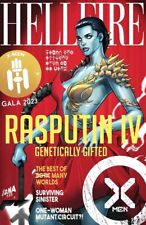
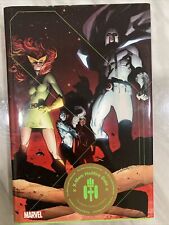
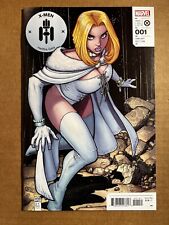
![WOLVERINE #37 [FALL] UNKNOWN COMICS DAVID NAKAYAMA HELLFIRE EXCLUSIVE VAR (09/20 picture](/store/img/g/IIwAAOSwrnllW9Pb/s-l225/WOLVERINE-37-FALL-UNKNOWN-COMICS-DAVID-NAKAYAMA-HE.jpg)
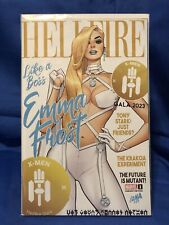
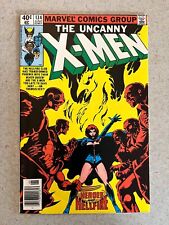
![JEAN GREY #1 [FALL] UNKNOWN COMICS DAVID NAKAYAMA HELLFIRE EXCLUSIVE VAR (08/23/ picture](/store/img/g/whwAAOSwj9llS87q/s-l225/JEAN-GREY-1-FALL-UNKNOWN-COMICS-DAVID-NAKAYAMA-HEL.jpg)
![WOLVERINE #37 [FALL] UNKNOWN COMICS DAVID NAKAYAMA HELLFIRE EXCLUSIVE VIRGIN VAR picture](/store/img/g/eu4AAOSwe4FlW9Pa/s-l225/WOLVERINE-37-FALL-UNKNOWN-COMICS-DAVID-NAKAYAMA-HE.jpg)

